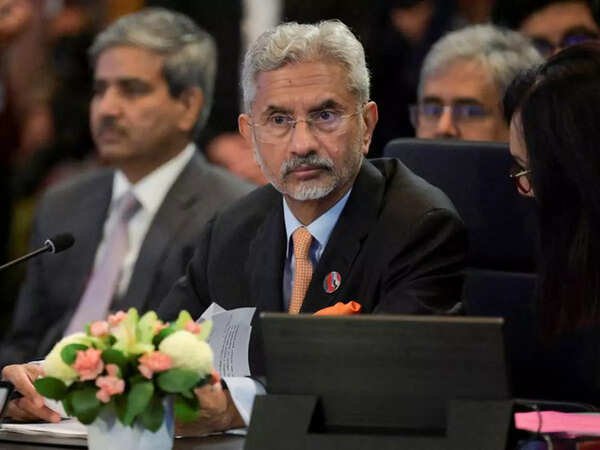Published
on
By
By Adedapo Adesanya
The Naira showed no signs of stemming its downward slide against the US Dollar in the Nigerian Autonomous Foreign Exchange Market (NAFEX) on Tuesday, March 11.
At the trading session, the domestic currency lost 0.22 per cent or N3.44 on the greenback to settle at N1,535.73/$1, in contrast to the preceding day’s N1,532.29/$1, according to data obtained from the Central Bank of Nigeria (CBN).
However, the local currency maintained stability against the Pound Sterling and Euro in the official forex market yesterday at N1,978.48/£1 and N1,658.07/€1, respectively.
It was a similar situation with the Nigerian Naira against the US Dollar at the parallel market on Tuesday at N1,580/$1.
As for the digital currency market, the majority of the benchmarked tokens were in the green territory during the session amid news that Ukraine has agreed to the President Trump’s administration proposal for a 30-day ceasefire in its war with Russia.
Russia has yet to weigh in, but the agreement will hinge on that country’s acceptance, according to a joint statement of Ukraine and the US after a meeting of their delegations in Saudi Arabia.
Some ease in trade tensions also provided support, although this could not provide support long term because of the different tariffs.
Ripple (XRP) gained 3.9 per cent to trade at $2.17, Binance Coin (BNB) went up by 2.3 per cent to $551.58, Dogecoin (DOGE) rose by 2.2 per cent to $0.1622, Bitcoin (BTC) increased by 2.1 per cent to $81,955.90, and Litecoin (LTC) soared by 0.9 per cent to settle at $89.35.
On the flip side, Solana (SOL) slumped by 0.8 per cent to $122.13, Ethereum (ETH) slid by 0.7 per cent to $1,878.38, and Cardano (ADA) depreciated by 0.2 per cent to $0.7221, while the US Dollar Tether (USDT) and the US Dollar Coin (USDC) sold flat at $1.00 apiece.
CSCS, AG Mortgage Bank Sink Unlisted Securities Market by 0.14%
Oil Market Rises as US Dollar Weakens Amid Tariff Fears
Adedapo Adesanya is a journalist, polymath, and connoisseur of everything art. When he is not writing, he has his nose buried in one of the many books or articles he has bookmarked or simply listening to good music with a bottle of beer or wine. He supports the greatest club in the world, Manchester United F.C.
Naira Stabilises at N1,606/$1 at NAFEM, Crashes to N1,615/$1 at Black Market
Naira Slips to N1,606/$1 at Official Market as FX Demand Pressure Mounts
Naira Slumps to N1,602/$1 at NAFEM, Firms to N1,605/$1 at Black Market
Naira Trades N1,599/$1 at NAFEM, N1,610/$1 at Black Market
Naira Stable at N1,601/$1 at Official Market, N1,610/$1 at Parallel Market
Naira Weakens to N1,601/$1 at Official Market, N1,610/$1 at Black Market
Your email address will not be published.
Published
on
By
By Adedapo Adesanya
Nigeria’s average daily crude oil production declined by 64,000 barrels per day or 4.4 per cent to 1.401 million barrels per day in April 2025 from 1.465 million barrels per day recorded in the preceding month (March).
The Organization of Petroleum Exporting Countries (OPEC) April Monthly Oil Market Report revealed this, saying the numbers are based on direct communication from the producing countries.
The report also indicated that oil production fell by 6.6 per cent below OPEC’s 1.5 million barrels per day quota, and approximately 32 per cent belief of the country’s 2025 budget target of 2.06 million barrels per day.
Nigeria’s persistent shortfalls in meeting government production targets comes from challenges such as underinvestment and rampant oil theft, all contributing to suppressed output.
Nigeria’s oil production peaked at 2.5 million barrels decades ago and despite ambitious 3-4 million barrels promises by subsequent governments, the highest actualisation in recent times have been 1.8 million barrels per day.
The decline in oil production since then and the falling oil prices in the international market are likely to strain fiscal revenues, worsening budgetary pressures
Market analysts have pointed out that this will impact national reserves, thereby reducing the availability of resources for developmental spending.
While the government has no control over global oil prices, it can, to some extent, meet its OPEC production quota.
Therefore, the government must intensify efforts by enforcing stricter penalties for oil theft, while fostering greater collaboration with local communities.
Simultaneously, there is a need to attract investment in the sector by ensuring that regulatory bodies and the judiciary work together to provide an enabling environment for investment and modernisation of oil infrastructure.
Published
on
By
By Modupe Gbadeyanka
A new report has shown the wide adoption of digital currencies in Nigeria despite efforts by the authorities to discourage the use of crypto.
The Central Bank of Nigeria (CBN) has yet to lift the ban of crypto transactions through the banking system in the country after almost five years.
In a report made available to Business Post by a venture capital firm, Hashed Emergent, it was stated that the USDT/Naira stablecoin pair has become the most traded on centralized exchanges, with stablecoin transfers in Nigeria nearing $3 billion in the first quarter of 2024, signalling the practical adoption of blockchain for real-world challenges like inflation and cross-border payments.
Last year, Nigeria ranked second globally for crypto adoption, according to Chainalysis, with $59 billion in crypto value received—$24 billion of that in stablecoins.
Stablecoin trading has overtaken Bitcoin trading on centralized exchanges, reflecting changing behaviour: for many, crypto is not speculative—it’s practical; it is how people hedge against inflation, send money, and make real-world payments.
According to the report, national agencies and multiple state governments are already implementing blockchain-based solutions across areas like identity verification, land registries, education records, and healthcare systems.
These aren’t pilots; they’re operational systems designed to improve transparency, efficiency, and trust in public services.
However, integration into existing public infrastructure remains a key challenge. Many legacy systems lack the technical readiness or interoperability needed for seamless adoption, and institutional capacity gaps—such as limited digital skills and fragmented procurement processes—continue to slow implementation.
Without addressing these bottlenecks, the long-term impact of public sector blockchain adoption may remain limited despite early momentum.
Published
on
By
By Adedapo Adesanya
ExxonMobil is planning a $1.5 billion investment in deepwater exploration and development of the Usan oilfield in Nigeria.
The Nigerian Upstream Petroleum Regulatory Commission (NUPRC) revealed this in a statement, noting that commitment will be implemented between this current quarter (Q2 2025) and 2027.
This announcement, it said, was made during a visit by ExxonMobil’s Managing Director in Nigeria, Mr Shane Harris, to the Commission’s Chief Executive of the NUPRC, Mr Gbenga Komolafe.
The company proposed a Final Investment Decision (FID) for late Q3 2025, subject to final Field Development Plan (FDP) approval as well as internal and partner funding approvals, the upstream regulator added.
According to the NUPRC, this is in addition to investment targeted at the accelerated development of the Owowo and Erha deepwater oil fields, amongst others.
Mr Harris, while speaking, stated that the planned capital deployment reflects ExxonMobil’s confidence in Nigeria’s upstream potential and its dedication to playing a pivotal role in the sector’s growth.
He also voiced ExxonMobil’s support for the NUPRC’s “Project 1 Million Barrels” initiative, which aims to increase Nigeria’s crude oil production to 2.4 million barrels per day in the medium term.
The initiative has gotten commitments from other oil firms operating in the country since it was floated last year.
On his part, the NUPRC Chief Executive, Mr Komolafe, welcomed the announcement, reaffirming the NUPRC’s role as a business enabler and pledging regulatory support to facilitate ExxonMobil’s operations.
Mr Komolafe highlighted the importance of sustained collaboration between regulators and investors to meet Nigeria’s production and energy security goals, highlighting compliance with the Domestic Crude Supply Obligation (DCSO) and the need for transparent pricing and accountability in the sector.
“The commission is committed to the implementation of Section 109 of the PIA, which addresses the subject of willing buyer, willing seller, and we urge producers to comply,” he stated.
Davos was Different this year
Lagos Seals Western Lodge Hotel In Ikorodu
Estranged Lover Releases Videos of Empress Njamah Bathing
Sort Codes of GTBank Branches in Nigeria
Subsidy Removal: CNG at N130 Per Litre Cheaper Than Petrol—IPMAN
First Bank Announces Planned Downtime
Highest Paid Nigerian Footballer – How Much Do Nigerian Footballers Earn
How To Link Your MTN, Airtel, Glo, 9mobile Lines to NIN
Copyright © 2022 BusinessPost



